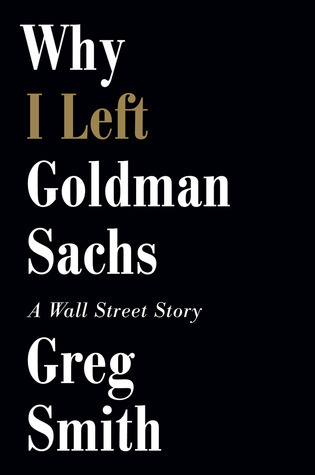What do you think?
Rate this book


380 pages, Paperback
First published October 24, 2010
I grew tired of the book prior to reaching its main idea. It is about time for someone working in Wall Street to produce an exposé that truly deserves the title, rather than merely being advertised as such.
Why l left GS gives the impression of a highfalutin autobiography, with the main topic only being introduced on the last 20% of the book, let alone the op-ed being far from earth shattering. The first 80% on the 10 years of his tenure from an intern to a middling employee is informative at most, and adds no value to the so-what factor.
To sum up, the reason behind his departure is set against the backdrop of the SEC investigation on GS' sale of CDOs in 2010. Greg discovers that clients mistrust GS, yet they still continue to work with them because of the long-standing and reputable relationships. Meanwhile, teamwork has gone out the window as sales are constantly promoting products with high gross credits (the yardstick for their bonuses)/ margins, when GS itself doesn't even think it's a good investment and trades with the proprietary strategy on the reverse position - colleagues are now more focused on generating profits, which conflicts with the notion that the financial industry should be driven by client needs (fiduciary duty). One aspect that struck Smith is how openly this attitude is displayed, and is contradictory to what he believed the industry once stood for. He deems that to build a client case, sales needed to establish genuine relationships, not exploit unsuspecting individuals.

A quick summary would read like this:
I did really, really good in school and got into Stanford.
I did really, really well at Stanford and worked really, really hard and got an internship at Goldman
I worked really, really hard at Goldman and got promoted.
I worked really, really hard at Goldman, aligned myself with the right people and got promoted again.
I kept working really really hard... and aligning my self with the right people, and I didn't really like where the industry was going, so i resigned in the NY Times.